Dear members of the SFDI, Dear followers, who visit this page,
You’ve already received a few dozen messages like this… It’s even coming rather late because we wanted to wait as long as possible to be sure that it was not possible to keep the promising Toulouse colloquium on the scheduled dates (28 and 29 May).
The Council of the Society (which met by videoconference on Saturday 14 March), while taking the decision in principle to postpone the colloquium, had planned to give itself until 10 April before confirming this decision. It nevertheless asked the organisers, Clémentine Bories and Lucien Rapp, to envisage fallback dates after consultation with the speakers and the University authorities of Toulouse-Capitole. It is now accepted that postponement is inevitable; moreover, the University has decided to postpone all the University colloquia until the next academic year.
After intense, rapid and effective consultations, the organisers propose to retain the dates of 12 and 13 November, which seem acceptable to almost all the speakers and to the University. Thank you all for holding these two days. We hope that you will be many in the “pink city”, the homeland of Maurice Hauriou and Claude Nougaro (let’s not be sectarian!).
I would like to express our deep gratitude both to Lucien Rapp, Clémentine Bories and their team, as well as to the speakers for their flexibility and swift reactions.
I would also like to express the Society’s sincere thanks to the Bureau of Young Researchers and to those in charge of the half-day workshops, initially programmed to take place in Toulouse on 23 March and in Nanterre on 3 April, who are making arrangements to reschedule these meetings, as well as to Franck Latty and Jeanne Dupendant, initiators of the first doctoral seminar which was to take place in Nanterre also on 3 April and which must, of course, also be postponed. The same goes for our half-day news conference on “The Economic War” which was to take place on 31 March at the University of Paris Est-Créteil and which its organizer, Arnaud de Nanteuil (with thanks to him as well), plans to reschedule in September. Of course, we will come back to you as soon as possible to let you know the new dates.
On the other hand, we are confident that the workshop on “The finances of international organisations”, organised by Anne-Thida Norodom and Fabrice Bin for the French Society of Public Finance, which is due to take place in Paris on 26 June, can be held as planned and I hope that, in the absence of a spring colloquium, we will be able to meet there in large numbers before the summer break.
But I do not want to stop at this practical information that the members of the Society have received by mail.
The coronavirus crisis is terrible. Terrible for the sick and for all those who have lost – and will lose – loved ones, and to whom I extend all my sympathy. Terrible for the caregivers who cannot be thanked enough for their dedication at the cost of their exhaustion and, at times, their lives. But terrible also for what it reveals about our world, which is decidedly completely interdependent and so unprepared to be so.
At the beginning: the Chinese dictatorship – whose first reflex was to put the seven doctors who sound the alarm in prison, and who comes afterwards for pure propaganda purposes to boast of having put an end to the pandemic (it looks to be true, although one cannot be sure of anything with this kind of regime, but at what price! and with this scandalous delay). For once, I agree with Trump: it is more legitimate to speak of a “Chinese virus” than it was to refer to the even more terrible epidemic of 1918-1919 as the “Spanish flu”.
Besides, I have the feeling (this letter commits only me…) that the rulers of other countries have “tinkered” with what they could, without it being possible in all honesty to pass judgment (except when they withheld information, as in Iran).
But that is what is most worrying, especially for us internationalists: they have adopted a national attitude of “every State for itself” in both a generalised and isolated way – despite the French President’s laudable attempts to encourage a European response – while the virus hasn’t really realized what borders mean…
Our cherished international law has had virtually no say. The Director-General of the WHO was initially concerned exclusively with pleasing China. But the Organization obviously does not have the means, even legal ones, to deal with this kind of humanitarian disaster. The premonitory colloquium of our Society held in Rennes in 2018 on Health and International Law (and published last year by Pedone) unfortunately does not contradict me. The covid-19 crisis has highlighted the inadequacies of the International Health Regulations: admittedly, it is a legally binding instrument for WHO member States (unless there are reservations or refusals) but it gives pride of place to sovereignty and, above all, its control mechanism is weak; as for sanctions, let us not talk about them. And on the side of the United Nations Security Council, which is so quick to take up a bit of everything, it is characterized for the moment by its deafening silence.
Let’s hope that the trauma that this terrible pandemic rightly causes will lead to concrete measures; a drastic strengthening of the IHR and, why not, the creation of a “Global Health Security Council”, endowed with extensive powers, and which could be “bicameral”: one assembly of States; another, composed of independent experts (it is true that fewer and fewer States know what independence is…). But we can hope – dream?
Dear members of the SFDI, dear internationalists, let’s try to mobilize ourselves, to be a force of proposal. If the SFDI can serve as a relay, do not hesitate to contact us. And, of course, take care of yourselves – and of others!
Alain Pellet
President of the SFDI


